Learn advanced English vocabulary: 4 Strategies for Rapid Improvement and Long-Term Memory
Advanced English vocabulary learning is always an "unnamed obsession" for those who pursue a passion for learning English. There are countless issues related to vocabulary learning that cause you to constantly feel stressed, frustrated, and even exhausted. It's the situation of learning and forgetting or not being able to apply what you've learned...
Therefore, understanding these difficulties of IELTS exam takers, PREP will share with you 4 methods to learn advanced English vocabulary that many candidates currently apply to enhance their memorization. These 4 "tips" on how to self-study a large amount of advanced vocabulary are extremely effective. Let's follow the article below by PREP!
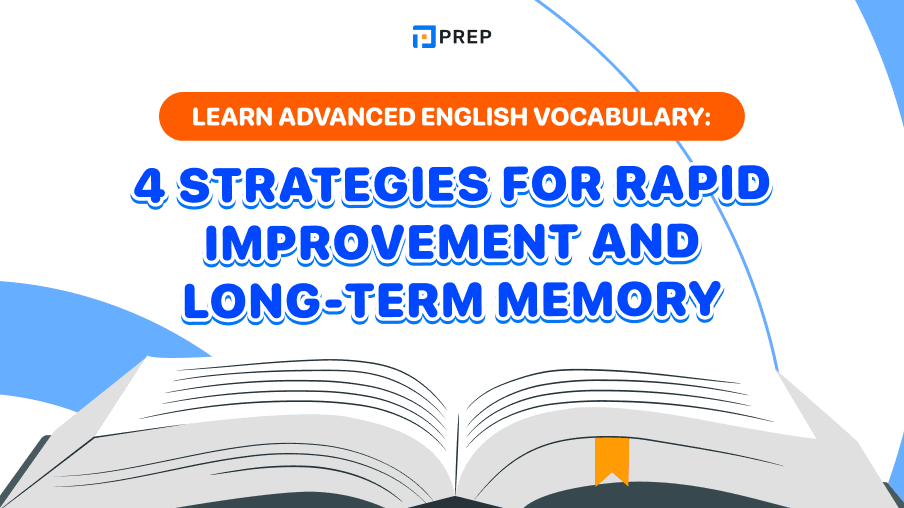
I. Multimodal Approach - How to learn advanced English vocabulary?
There is a common misconception, not only among students but even among experienced teachers, called Learning Styles. Essentially, it suggests that we have different ways of learning, some learn best through visuals, some through reading, some through listening...
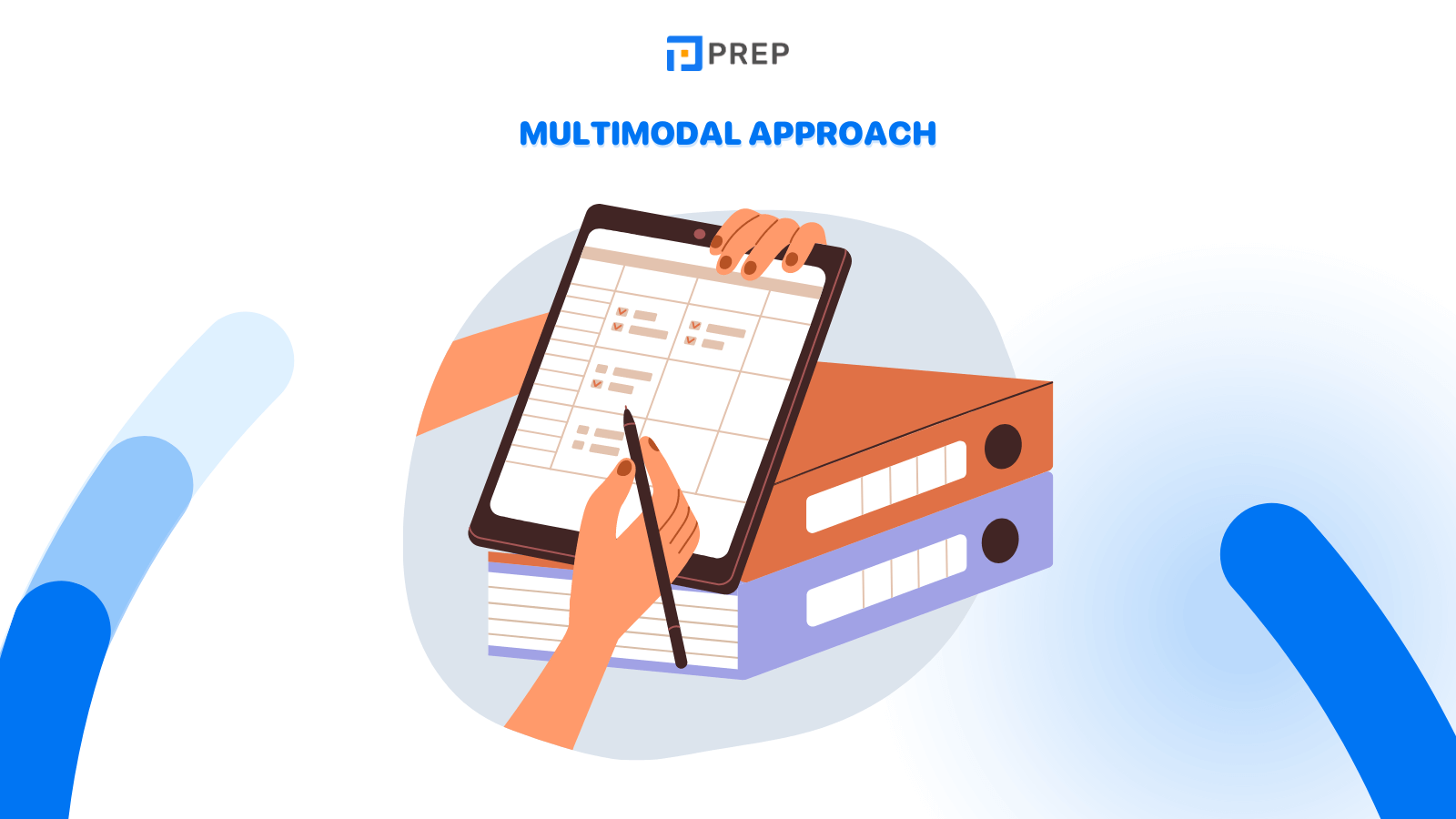
However, in reality, it has been proven long ago that the above concept is incorrect. We all learn best through a Multimodal Approach, which means learning by engaging multiple channels of information simultaneously (or slightly apart), such as reading (definitions, example sentences), viewing (illustrative images, videos, or imagining the images that words describe), listening (pronunciations, native speakers' speech), and writing (constructing sentences, writing the words down)...
Even if we have a specific preference for a certain method, the most effective approach is still Multimodal. Therefore, when studying advanced vocabulary, let's pay attention to engaging all our channels of information!
II. Learn advanced English vocabulary through Flashcards
Next, after learning advanced vocabulary, how do we remember and recall those words? Here, I will list some study methods for you to consider:
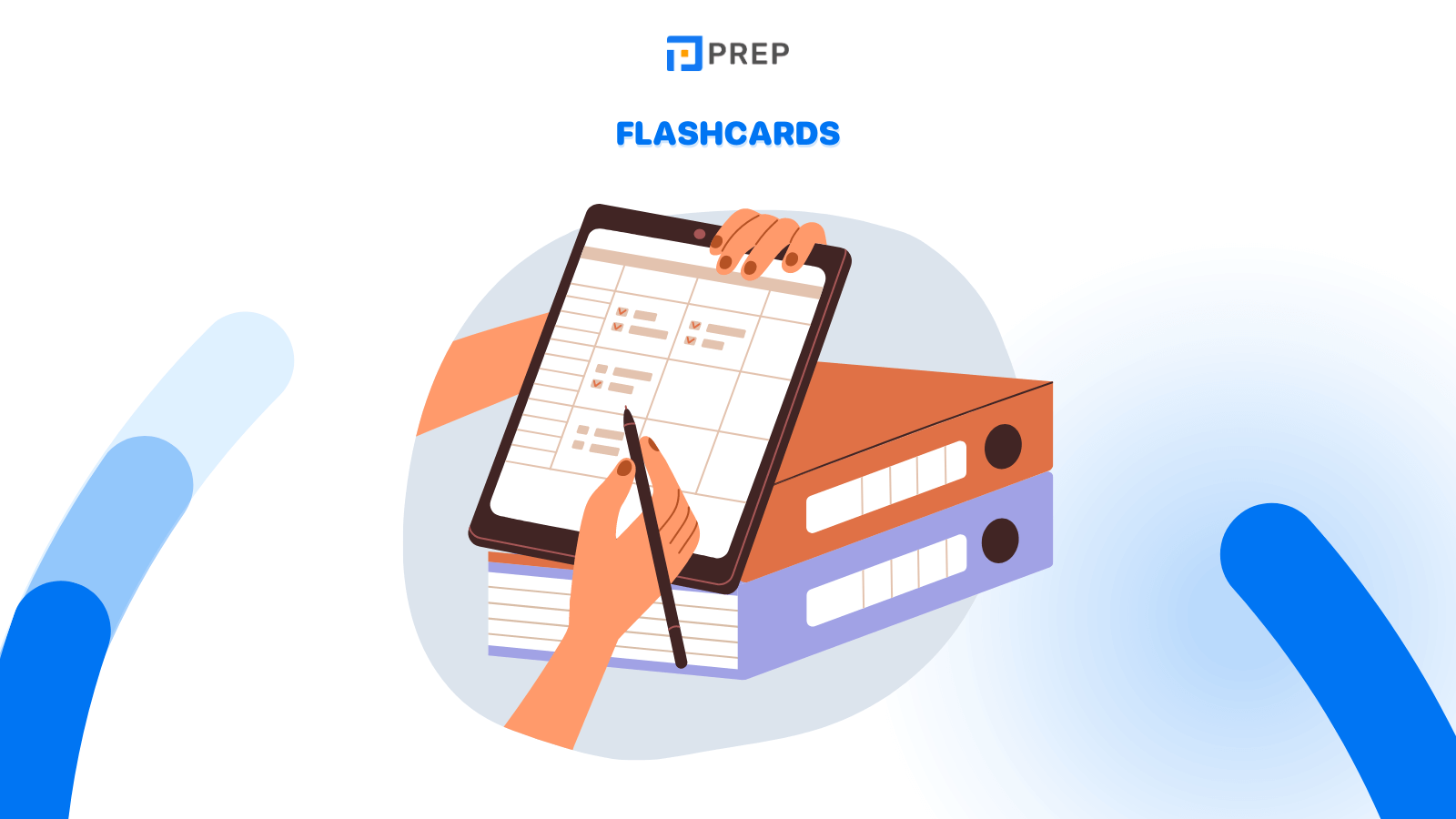
Flashcards are undoubtedly a familiar tool for students, but are we truly harnessing their full potential? When it comes to their utilization, there are numerous approaches, but allow me to propose one method:
- Deck 1 is used to write down new words, one word per card.
- Deck 2 contains actions we can do with the new words (translate the meaning, create a sentence, pronounce it, rewrite the word, recall a collocation with the word, explore different word forms such as noun, verb, adjective, use it in different contexts such as spoken language, written language, specific situations, find synonyms, find antonyms, find at least one related word, create a topic to discuss based on the word and practice speaking, create a mind map with the word...), each action is one card.
During each review, we draw one word from deck 1 and one action from deck 2, then perform the action and check the answer. For vocabulary, we can write down the information on the back of the card in Deck 1, or look up the information on Google (if writing it on the card, according to the suggestion, we don't need to write down what is already provided in the Cambridge dictionary, but rather focus on personal insights or valuable information that the dictionary doesn't provide).
However, this flashcard learning method has a drawback when done manually: for the same word, you may remember the pronunciation clearly but not the collocation. So, how can you review collocations more frequently and reduce the need to review pronunciation?
III. Spaced Repetition - An Effective Method to Learn advanced English vocabulary
If we want the most accurate method, we can use an intelligent machine learning system based on a concept called Spaced Repetition to automatically adjust the review frequency and enhance our English vocabulary and its various aspects. (I won't reveal that it's a feature soon to be available in Prep!)
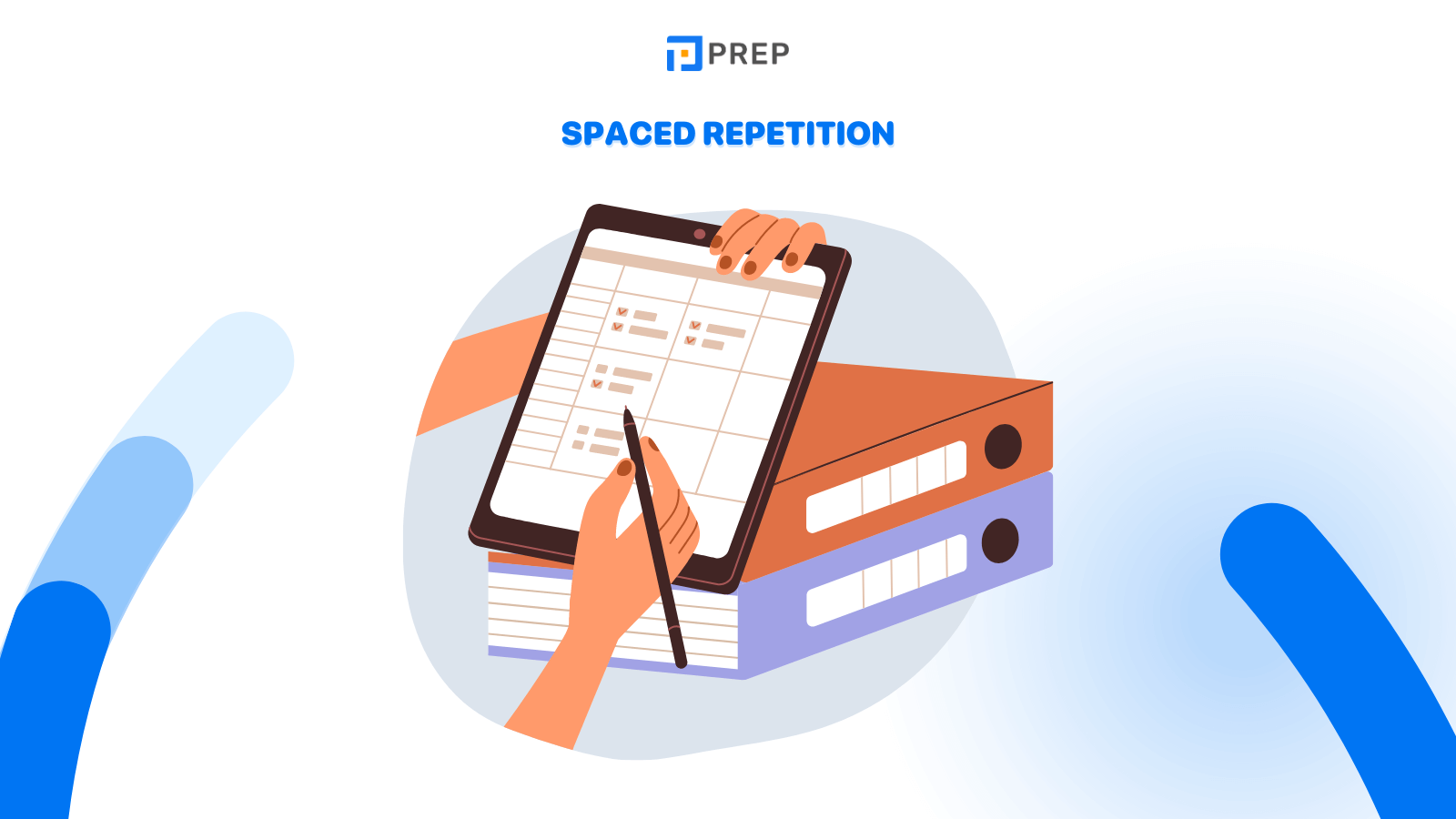
If we're doing it manually, we can divide appropriate time intervals for review, but we should review each word at least three times. Initially, we can evenly distribute the time intervals between practice sessions, and then gradually increase the time between two review sessions once we feel comfortable. It could start with once a week, then every ten days, once every two weeks, and so on.
However, once again, as the number of words we learn daily grows, how can we keep track of all the words and our level of retention for advanced English vocabulary? If we only focus on memorizing the word + its translation + pronunciation, managing flashcards becomes relatively simple, but it won't help us understand the complete aspects of advanced English vocabulary or apply it effectively.
So, how can we tackle this dilemma? Here's a little hint: as mentioned earlier, Prep will soon introduce a feature to assist you in this area. Stay tuned to enhance your English vocabulary effectively!
IV. Learn advanced English vocabulary through Reading and Listening
In addition, there is one topic that we are certainly interested in, especially for those of you who are too lazy to make flashcards like me, which is advanced IELTS vocabulary learning through reading and listening in English. How should we approach this to effectively improve our English vocabulary, and what should we keep in mind when it comes to listening and reading? Can we focus solely on listening and reading without using systems like Spaced Repetition or flashcards?
At the same time, I will also reveal another method called Chunking (or the Lexical Approach), as well as "decode" other common learning mistakes, and specifically, how to effectively learn advanced English vocabulary. Since this article is already long, I will share this learning method in another article!
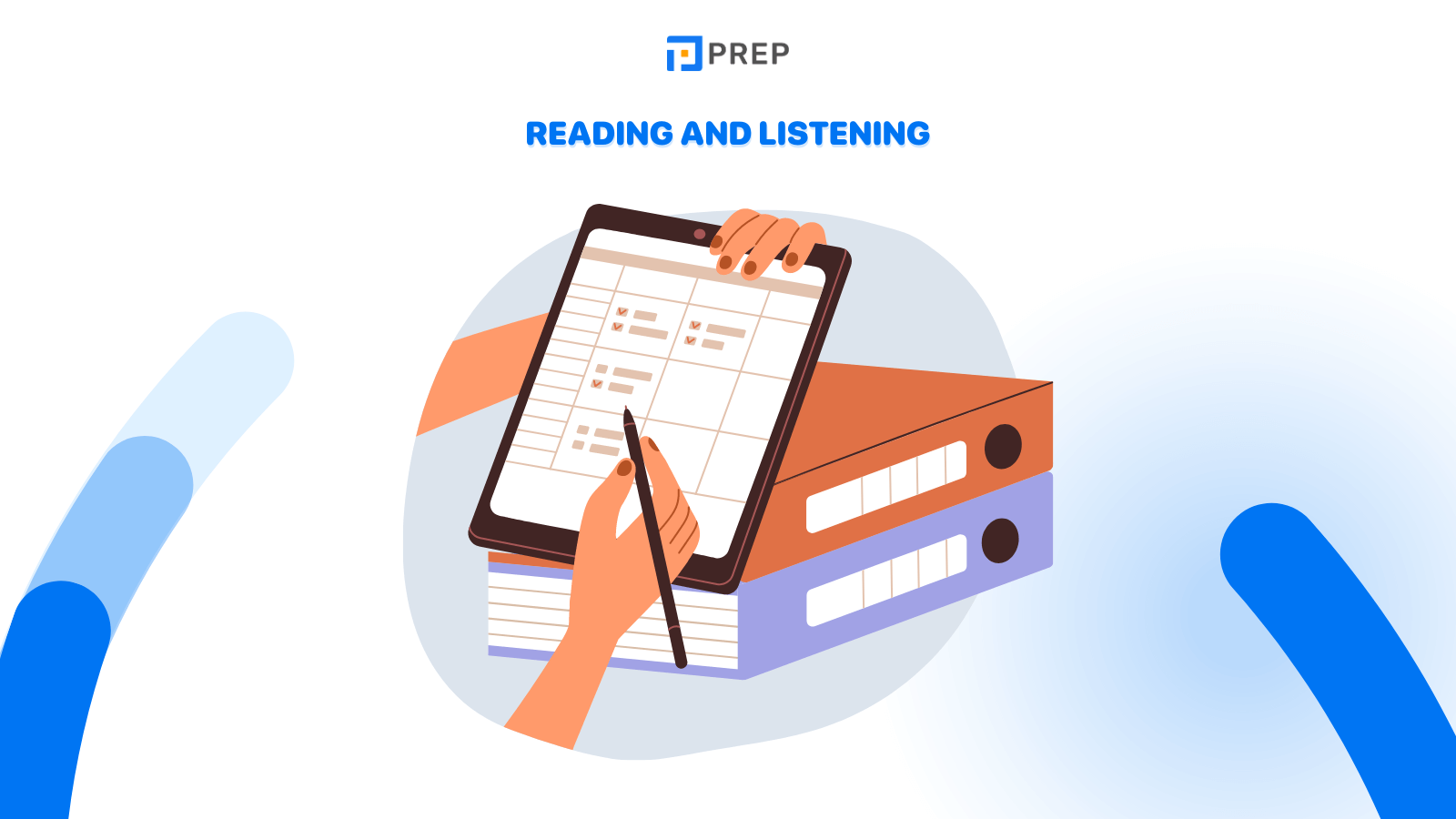
As for you, if you have any other methods to effectively learn advanced English vocabulary, please comment below the post! The most important thing is that we remember to practice regularly on the prepedu.com website! Practice makes perfect, after all.

Hi I'm Chloe, and I am currently serving as an Product Content Administrator at Prep Education. With over five years of experience in independent online IELTS study and exam preparation, I am confident in my ability to support learners in achieving their highest possible scores.
Comment
Premium content
View allPersonalized roadmap
Most read












